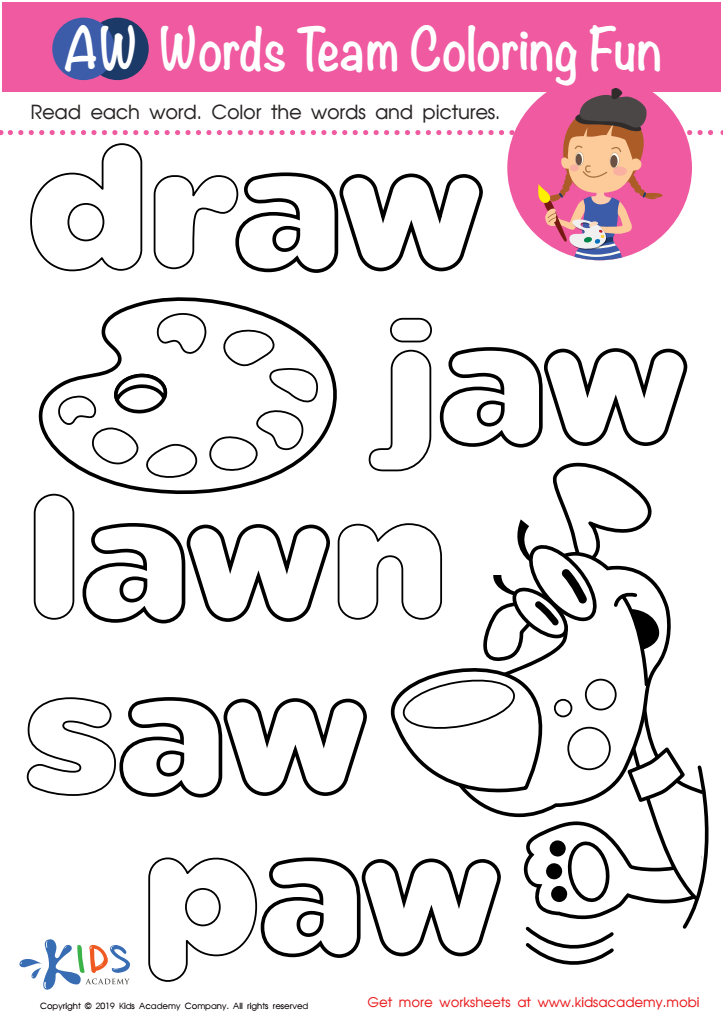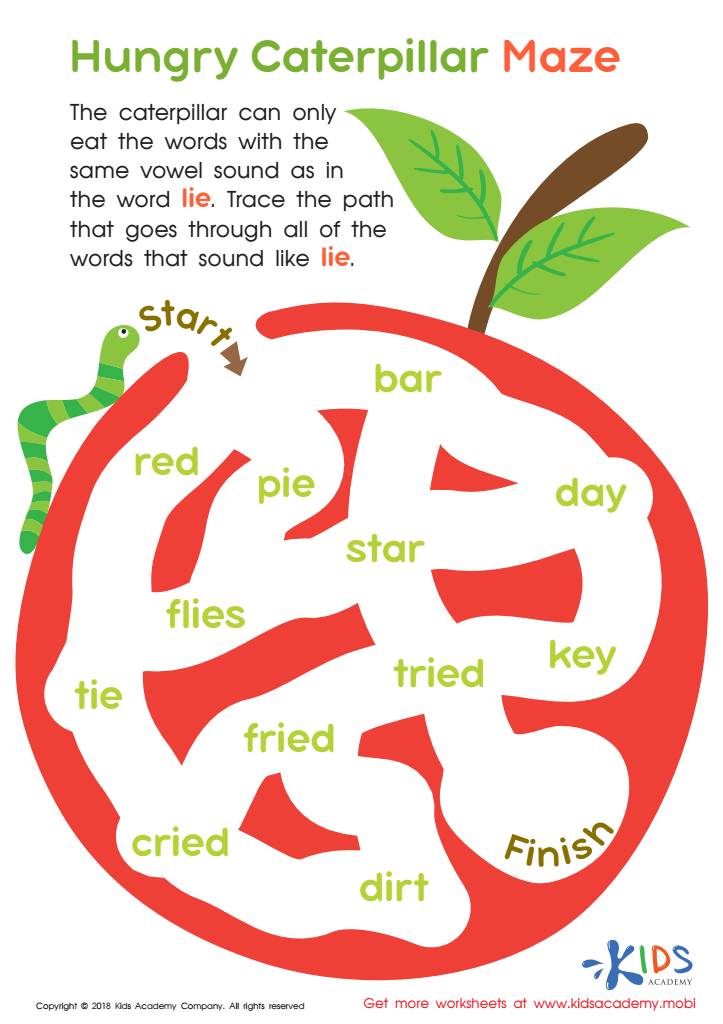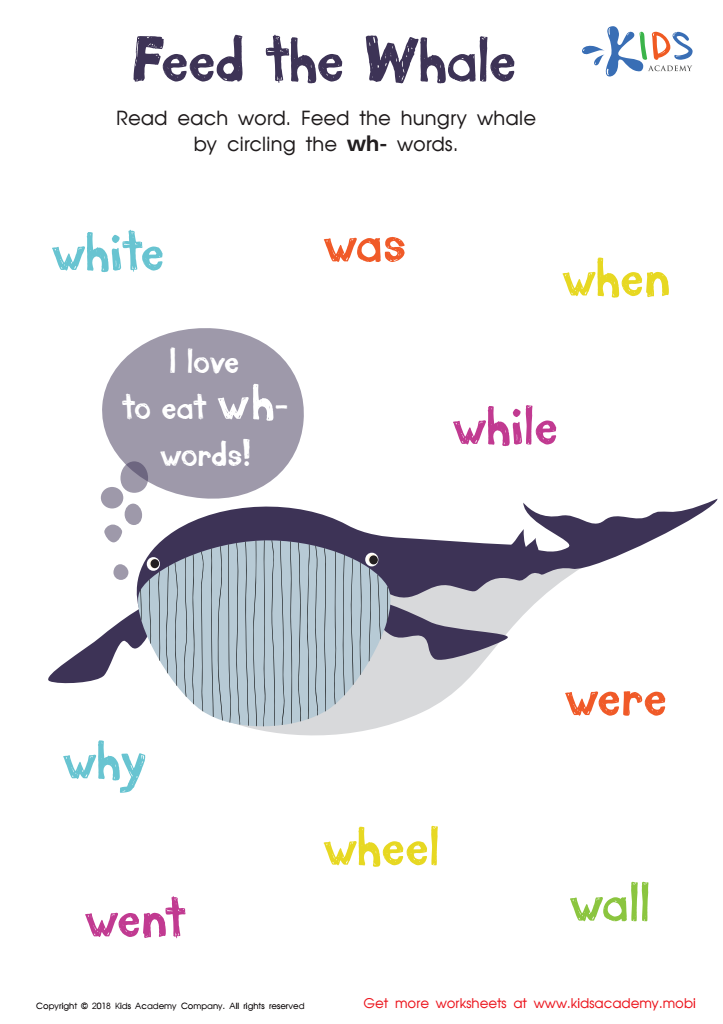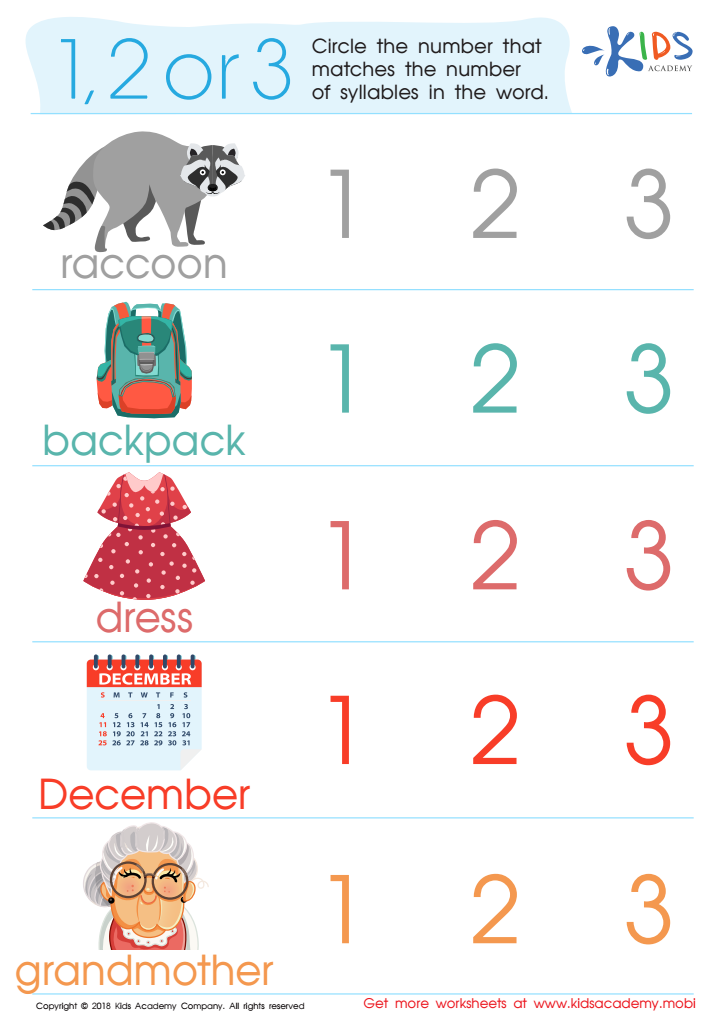Fine Motor Skills Normal Phonics Worksheets for Ages 6-9
5 filtered results
-
From - To
Enhance your child's learning experience with our Fine Motor Skills Normal Phonics Worksheets designed specifically for ages 6-9! These engaging worksheets seamlessly combine phonics practice with fine motor skill development, making learning both fun and effective. Children will improve their handwriting, dexterity, and hand-eye coordination as they trace letters, color images, and connect dots. Ideal for young learners, these worksheets reinforce phonetic concepts while keeping kids entertained through interactive activities. Perfect for home or classroom use, they provide a comprehensive approach to foundational literacy and motor skills. Download now and watch your child thrive in their educational journey!


AW Words Team Coloring Fun Worksheet


Long and Short U Worksheet


Hungry Caterpillar Maze Worksheet


Feed the Whale Worksheet


1, 2 or 3? Worksheet
Fine motor skills and phonics are critical components of early childhood development, particularly for children aged 6-9. As educators and parents, understanding their importance can significantly enhance a child's learning experience.
Fine motor skills involve the coordination of small muscles in hands and fingers, enabling children to perform tasks such as writing, cutting, and manipulating small objects. These skills are essential for academic tasks and everyday activities, boosting a child's confidence and independence. Mastery of fine motor skills supports cognitive development, allowing children to express their ideas through art, writing, and hands-on activities, which are vital for holistic learning.
Normal phonics, the method of teaching children the relationships between sounds and letters, is crucial for reading proficiency. Children in this age group are typically transitioning from learning to read to reading to learn. Strong phonics skills promote better reading comprehension and enhance overall literacy. This foundation not only supports academic success but also sparks a lifelong love for reading.
When parents and teachers prioritize fine motor skills and phonics, they equip children with essential tools for effective learning and personal growth, paving the way for future academic achievements and cognitive development. Engaging with these skills also fosters collaboration between home and school, reinforcing a supportive learning environment.

 Assign to My Students
Assign to My Students




















